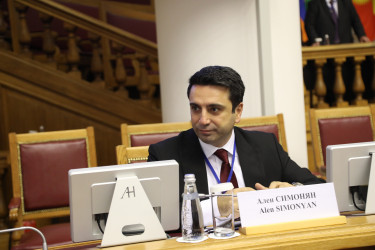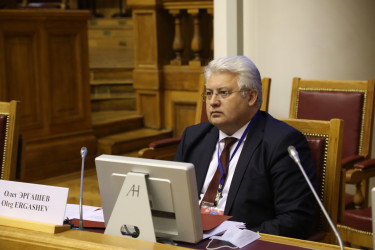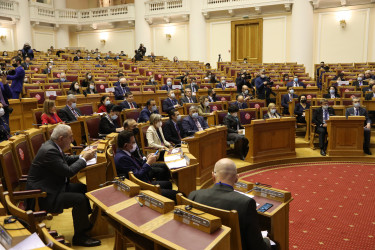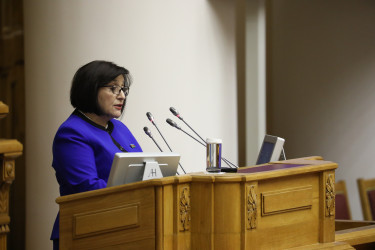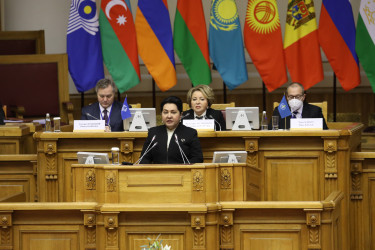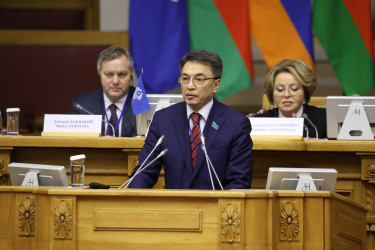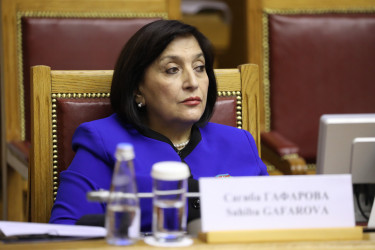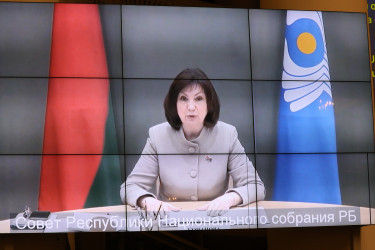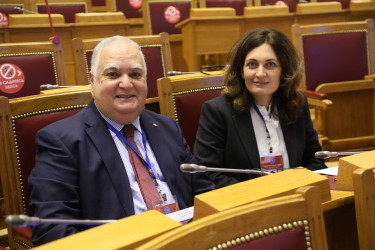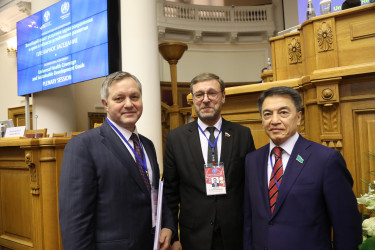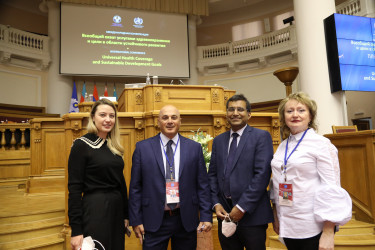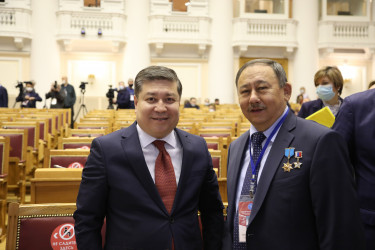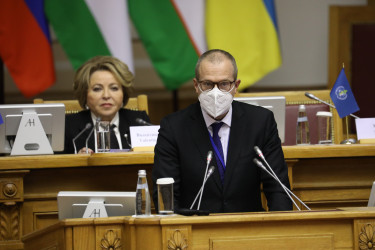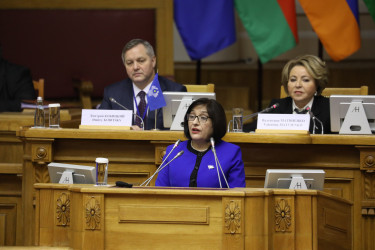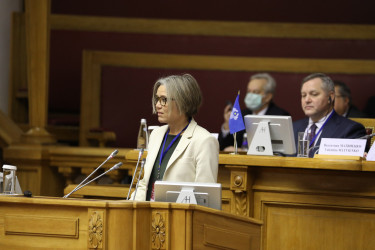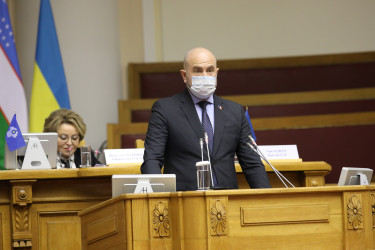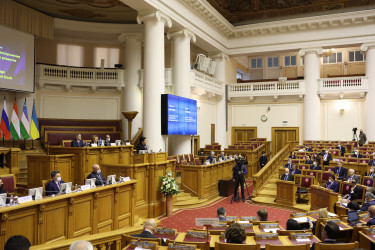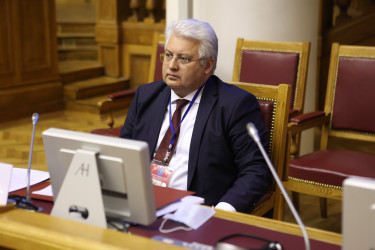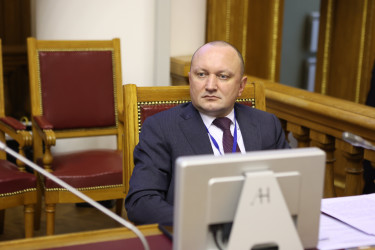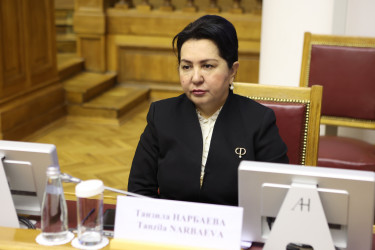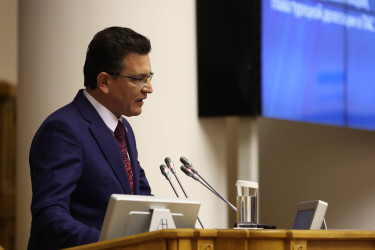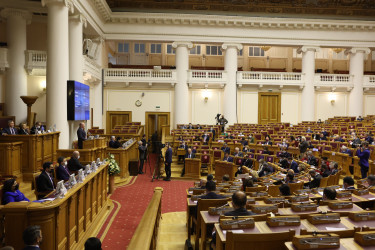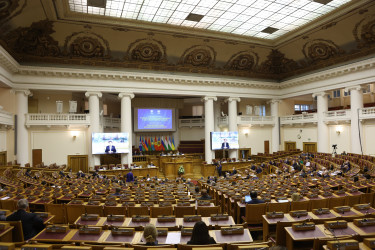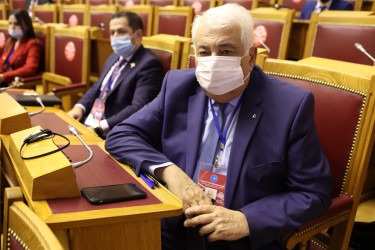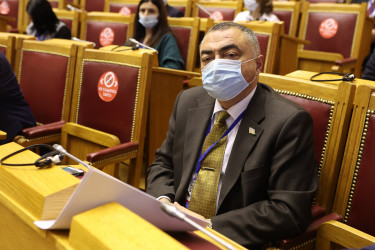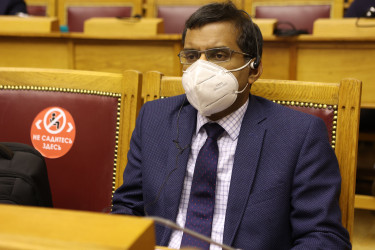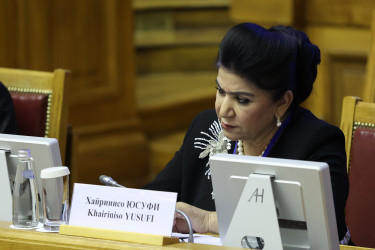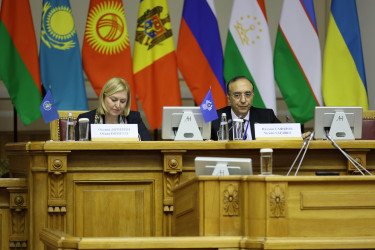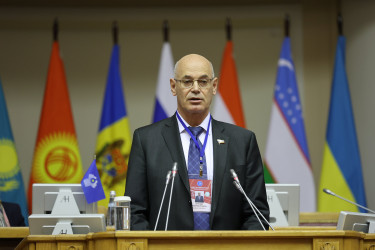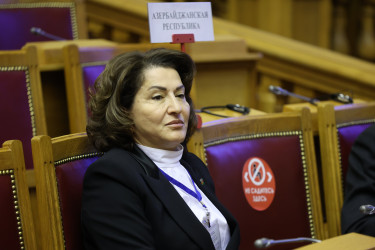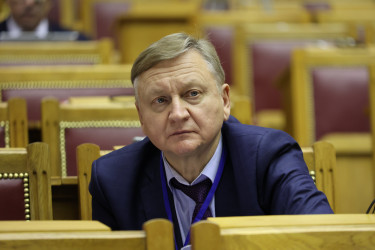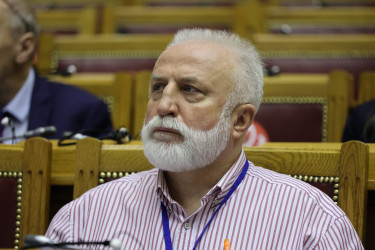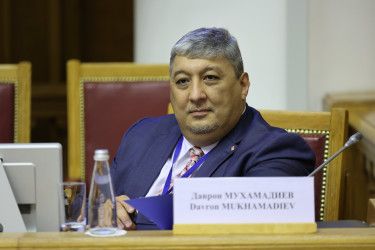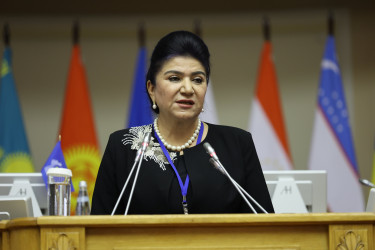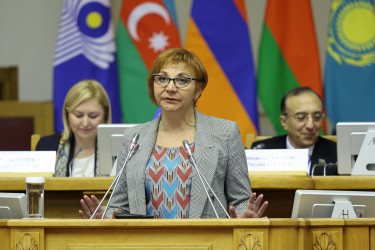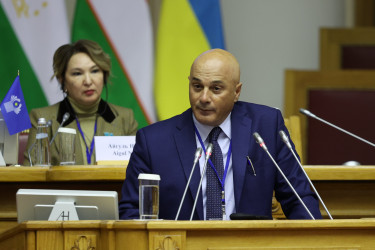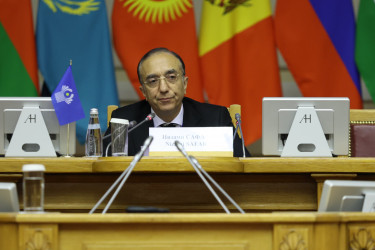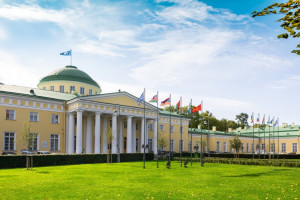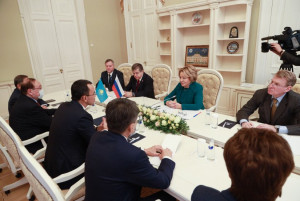IPA CIS and WHO Held International Conference on Universal Health Coverage
25 November 2021
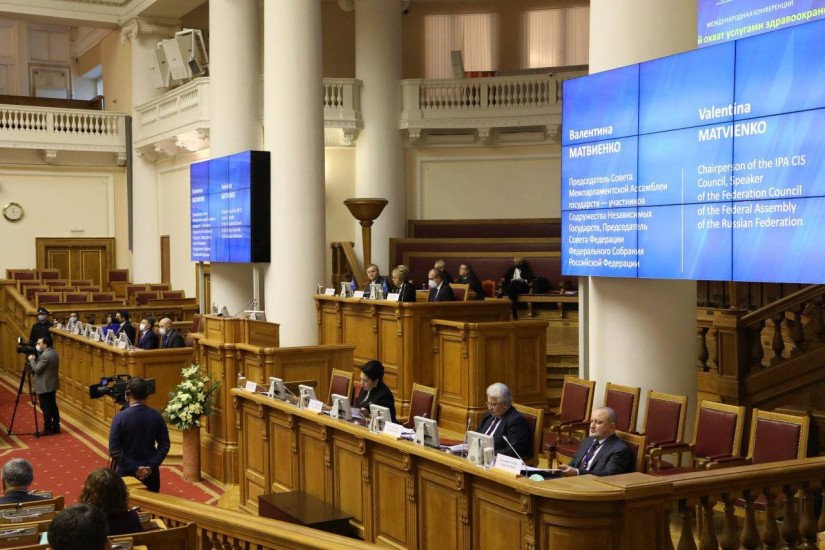
On 25 November 2021, the international conference “Universal Health Coverage and Sustainable Development Goals” took place in the Tavricheskiy Palace – the IPA CIS headquarters. The event was co-organized by the CIS Interparliamentary Assembly and the Regional Office for Europe of the World Health Organization.
The plenary session of the Conference was opened by Chairperson of the IPA CIS Council, Speaker of the Federation Council of the Federal Assembly of the Russian Federation Valentina Matvienko. Noting the relevance of the Conference topic in the context of the COVID-19 pandemic, she stressed that the coronavirus brightly highlighted the key challenge – that is deepening inequality. Valentina Matvienko stressed that the speed of the spread of COVID-19 and its consequences for the entire system of international relations required a collective response. The Chairperson of the IPA CIS Council identified three components in this work: free access to vaccines, improving efficiency of emergency response and the widest possible coverage of the population with health services. Valentina Matvienko emphasized that an open dialogue between the WHO Regional Office for Europe and the CIS Interparliamentary Assembly could serve as a good example of combining the international. She also expressed confidence that such joint events with the participation of MPs would yield practical results.
Director of the WHO Regional Office for Europe Hans Kluge agreed with Valentina Matvienko and added that investing in health is investing in economic growth, environmental protection, reducing poverty and promoting equity. He also stated that health and well-being were the ultimate driving force of the economic, social and environmental aspects of the Sustainable Development Goals. Among the main measures to achieve SDG Hans Kluge named the prevention of mental health, the expansion of healthcare opportunities through digitalization, the addressing immunization problems and the promotion of healthy lifestyle. At the same time, according to the Director of the WHO Regional Office for Europe, the implementation of these measures requires a lot of political will. In this regard, Hans Kluge called on government officials and parliamentarians to keep health at the top of all agendas.
Speaker of the Milli Majlis of the Azerbaijan Republic Sahiba Gafarova noted in her speech the importance and relevance of today’s Conference in light of the COVID-19 pandemic, which had made the need for universal health coverage more urgent than ever. She also spoke about the measures taken in the health sector by the Azerbaijan Republic.
Speaker of the Senate of the Oliy Majlis of the Republic of Uzbekistan Tanzila Narbaeva informed the Conference participants about legislative measures to increase the coverage of the population of the Republic of Uzbekistan with quality medical services. Among the priority areas of state policy in this field the Speaker named improving the reproductive health of citizens, supporting breastfeeding and establishing requirements for food for infants, protecting children from information harmful to their health, etc.
Deputy Speaker of the Senate of the Parliament of the Republic of Kazakhstan Askar Shakirov, who took part in the Conference in the capacity of the OSCE PA Vice-President, also thanked the IPA CIS and the WHO Regional Office for Europe for organizing such a representative and important event. He noted that the COIVD-19 pandemic forced people to face a new reality, which showed, on the one hand, unpreparedness, and on the other hand, the close interdependence of health issues, economic sustainability and comprehensive security. He also informed his colleagues on the OSCE PA activities in this field.
Chair of the Standing Committee of the Parliament of the Republic of Moldova on Agriculture and Food Industry, Chair of the IPA CIS Permanent Commission on Agrarian Policy, Natural Resources and Ecology Vladimir Bolea noted that the Republic of Moldova followed the WHO last year’s call to the international community for solidarity, finding solutions and using science in the fight against COVID-19. He identified three key elements for successfully advancing the SDG agenda in Moldova: strengthening primary health care, hospital sector reform and restructuring public health services. Vladimir Bolea also thanked the WHO for its support in implementing these elements and the Russian Federation for providing the vaccine.
Speaker of the Council of the Republic of the National Assembly of the Republic of Belarus Natalya Kochanova took part in the Conference via videoconferencing. In her speech, she stressed that the pandemic demonstrated the importance of strong health systems. She also told the Conference participants about the work carried out in the Republic of Belarus in achieving universal health coverage.
The plenary session was also addressed by Regional Director for Europe of the International Federation of Red Cross and Red Crescent Societies Birgitte Bischoff Ebbesen, Head of the Turkish delegation to the Parliamentary Assembly of the Mediterranean Atay Uslu, Deputy Minister of Health of the Russian Federation Evgeny Kamkin, Secretary General of the Parliamentary Assembly of the Black Sea Economic Cooperation Asaf Hajiyev, Deputy Head of the Regional Delegation of the International Committee of the Red Cross in the Russian Federation, Belarus and Moldova for operational activities Francisco Javier Sepero Garcia.
Secretary General of the Shanghai Cooperation Organization Vladimir Norov sent a video message to the Conference participants.
The plenary session was followed by two panel discussions, in which the CIS and European MPs and representatives of international organizations took part.
The outcomes of the event were announced at the final plenary session. The Final Declaration noted the special importance of ensuring Universal Health Coverage (UHC) during the COVID-19 pandemic to overcome the spread of the disease and its consequences, and also recognized the important role of parliaments and MPs in advancing the UHC agenda.
In this regard, the Conference participants called on parliaments and MPs to take all possible legislative measures to help governments achieve UHC by 2030 and provide quality, affordable and physically accessible medical care, as well as create a reliable and transparent legislative framework for regulating response mechanism in the field of health emergencies.


